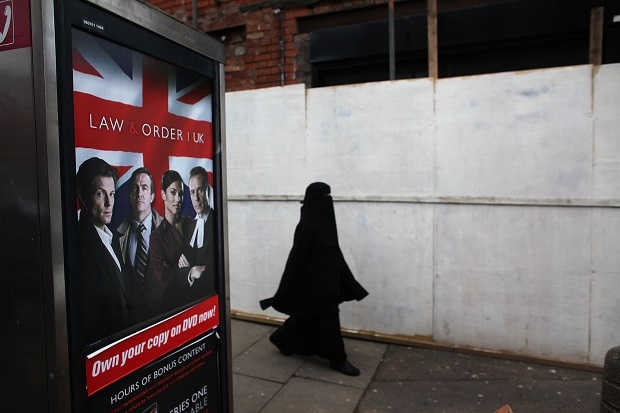Liberals are almost as likely to flee diversity as conservatives, according to new research by Prof Eric Kaufmann for Demos. Some 61 per cent of white people who were ‘very comfortable’ with mixed marriages (the best indicator of views on race) moved to whiter areas during the period, compared to 64 per cent of those who were ‘fairly uncomfortable’. The Sunday Times called it ‘polite white flight’.
The tendency of white liberals not to practise the diversity they preach dates back to the 1960s at least, and offends people who rightly point out that their reasons for moving are to do with space, schools, housing and a number of other things.
Up to a point. ‘Secondary migration’ is not specifically about race, but a lot of it is about living with ‘people like us’ in an area with a strong sense of community, and PLU do tend to be from similar backgrounds. Kaufmann’s research suggests that white liberals don’t aim for segregation but that there is a tipping point where they start to leave an area, perhaps when the minority population rises above 10 per cent. The richer people are, the more tolerant they can be, because the more like them anyone who moves into their very expensive area is going to be, cultural and social differences tending to vanish as we move up the scale (London’s super-rich may as well as be a separate species to the rest of us).
London liberals tend to be impeccably on-side when it comes to racial morality, but still want to be with people like them, some of whom are Asian or black or mixed, but not many, at least not proportionally to their boroughs. This doesn’t make them bad, just human, but the problem is that the whole diversity ideal is based on people having perfectible natures, the story culminating with a post-racial society where all segregation ends, a classic example of a utopian political belief.
Diversity was also from the start a morality play following the legacy of slavery and the Holocaust, with white liberals as heroes and conservatives as villains and in which the motivations and interests of non-whites – who took the role of victims to be saved by liberals – were not even considered. No one took account of the fact that newcomers might bring their own prejudices (including their views on mixed marriages) and that these might endure or even be strengthened by the second generation, rather than diminished.
A morality play invites a very simplistic interpretation of politics as good v evil, when in reality this issue, like most, is about good v good. In the US Dr Richard Florida is the latest liberal academic to come to the same conclusion that David Goodhart reached ten years ago – that diversity and solidarity clash. This is never going to change, because it’s part of human nature, which is why the open borders side now increasingly focus on the economic benefits, as if these could possibly be more dramatic than the social impact (as Paul Collier notes in this article to accompany Exodus).
I’m conscious of the fact that the argument has shifted in the past 12-24 months, which as a conservative makes me uncomfortable because I prefer to be losing so I can complain about things, and more importantly it risks making multiculturalists defensive like cultists in When Prophecy Fails. I don’t want to win the argument against liberals, I just want their help in stopping London from becoming even more of a Ridley Scott/Paul Verhoeven dystopia than it already is.
I’m not that optimistic; race is to our age what sex was to the Victorians, and no one wants to admit to himself, let alone to the public, that he might be a deviant in any way. Therefore as we become more diverse we won’t get river foaming with much blood, but instead we’re likely to see increased social segregation, rising inequality and quietism about politics.







Comments